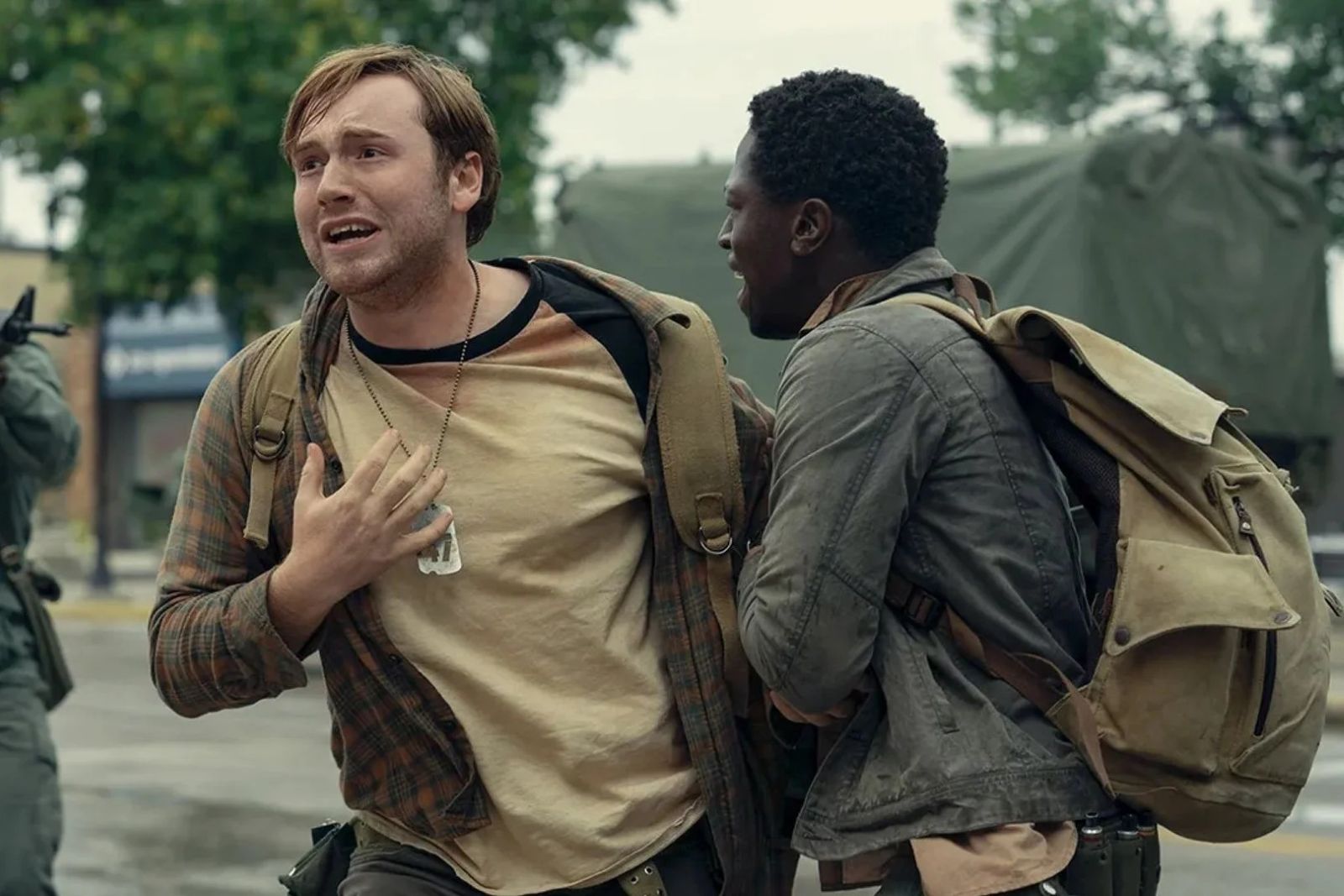Another month, another Stephen King adaptation. It’s never clear which side of the cinematic coin a new Kingaverse film will fall on – will it stand shoulder to shoulder with The Shining, or fall in line with The Dark Tower and The Life of Chuck, his less than spotless efforts?
The Long Walk, directed by Frances Lawrence (The Hunger Games Saga), sits comfortably in the upper-middle of King’s pantheon, between Doctor Sleep and It. Though, no ghosts are to be found here. The Long Walk is a no-nonsense, grounded story sharing a tone and style with The Shawshank Redemption and Misery, more than King’s popular spooky canon.
To abate the rigors of economic chaos, a by-yearly death game is held where boys from each American state walk until only one remains. You must hold 3mph. You cannot stop. If you do, you get your ticket: a bullet to the head. The walk is a staple of a peaceful society – The Hunger Games in miniature – with a prize of riches and a life changing wish motivating boys over eighteen to sign up – so much that nobody ever decides not to.
Ray Garitty (Cooper Hoffman, an excellent turn) is once such hopeful. An empathic and everyman, he’s signed up along with newly minted friends Peter McVries (David Jonsson), Art Baker (Tut Nyuot), and Hank Olson (Ben Wang), who meet at the starting line to face The Major (a titanic Mark Hamill). “Who’s ready to fucking win?!” the Major thunders, spellbinding each Walker into applause, though Garrity is curiously unimpressed by his macho display (there’s more here than meets the eye).
It’s here where Lawrence and writer JT Mollner wrap their hands around our necks and squeeze. It’s delicate at first: a pesky stone in a Walkers shoe, a charley horse for Curley (Roman Griffin Davis). Then, they hit us train-like in the gut: a boy stumbles, breaks down, and is blown to hell in front of everyone – “Final warning!” – with TV cameras trained on his skull for sport.
It’s all very Hunger Games, an arena Lawrence thrives in. His action is fuelled by both gruesome death scenes and riveting, theatre-like stretches of dialogue (lifted straight from the book) that explore each character’s humanity, skilfully making us root for them.
Hoffman and Jonsson are outstanding, each a well oiled machine of empathy and charm. Yet, there is a downside of such a likeable group. We’re going to lose 99% of them, there’s no plot armour, a factor we’re painfully aware of from the off. The effect is unique: it suffocates our fondness for the group, wrapping each moment of levity in agony, as the boys trudge toward their deaths. All but one, at least.
There’s a lot of inhuman dystopia out there without a hint of optimism, yet as brutal as they are, Lawrence and Mollner understand our need for sympathy and connection at the centre of such a gut-rending story. Despite an ending that strikes as reshot and rewritten to the point of pandering, The Long Walk can sit proudly beside King’s most engrossing and impactful film adaptations. And Hoffman and Jonsson certainly sit shoulder to shoulder with the Kingaverse’s best performances.
In cinemas nationwide now


Comments